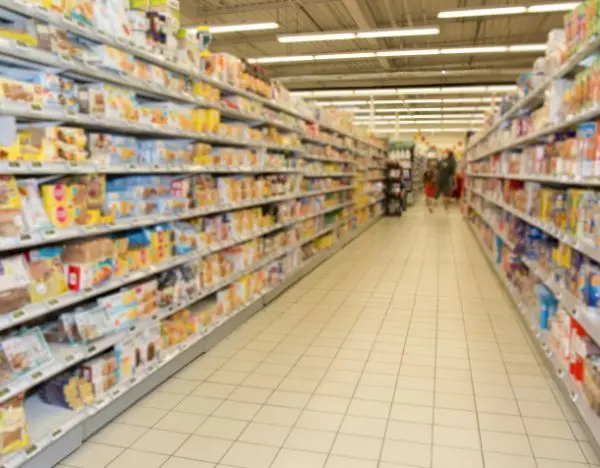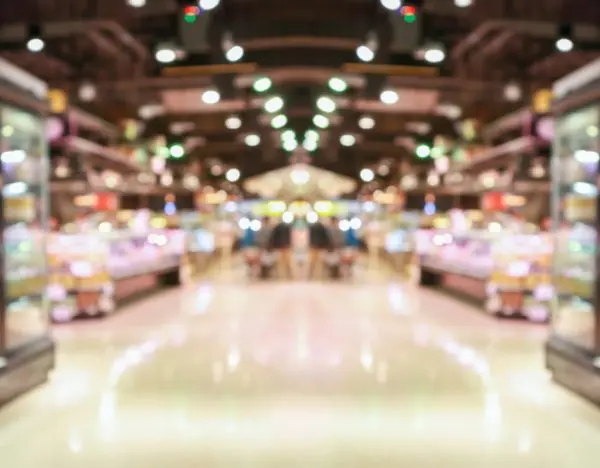Falling in a grocery store can be a disorienting and painful experience. Accidents can happen, whether it's a slippery floor, an uneven surface, or an obstacle in the aisle. Knowing what steps to take immediately after a fall can help protect your health, preserve your rights, and strengthen any potential personal injury claim. This article will cover what to do if you fall in a grocery store in NYC.
What Constitutes a Slip and Fall in a Grocery Store?

A slip and fall accident in a grocery store occurs when a person slips, trips, or falls due to dangerous conditions on the premises. These accidents can result in significant injuries and often occur due to store management or staff negligence. Understanding what constitutes a slip and fall in a grocery store can help you determine if you have a valid compensation claim. Here are some common scenarios and conditions that lead to slip and fall accidents:
1. Wet or Slippery Floors
- Spills: Liquids spilled on the floor from broken containers, leaking refrigerators, or customers can create slippery surfaces creating dangerous conditions.
- Cleaning Activities: Wet floors from recent mopping or cleaning activities, especially if warning signs are not properly displayed.
- Rain or Snow: Water tracked in from outside due to rain or snow, creating slick entryways and aisles.
2. Obstacles and Debris
- Merchandise on the Floor: Items that have fallen off shelves or displays and are left on the floor.
- Boxes and Stock: Stocking activities that leave boxes, pallets, or other items in the aisles.
- Trash and Litter: Debris, trash, or packaging materials left on the floor.
3. Poor Lighting
- Inadequate Lighting: Dimly lit areas that make it difficult to see hazards such as uneven flooring, steps, or spills.
- Burned-Out Bulbs: Light fixtures that are not functioning properly, creating dark spots in aisles and walkways.
4. Uneven Surfaces
- Damaged Flooring: Cracked, broken, or uneven tiles, flooring, or pavement.
- Rugs and Mats: Loose or wrinkled floor mats, rugs, or carpets that can cause tripping.
- Transitions: Sudden changes in floor levels or surfaces, such as from tile to carpet, without proper warning or marking.
5. Poor Maintenance
- Broken Fixtures: Damaged shelves, displays, or fixtures that can collapse or cause tripping.
- Unstable Shelving: Shelves or displays that are not properly secured and can tip over.
- Lack of Routine Inspections: Failure to regularly inspect and maintain the premises to identify and rectify hazards.
6. Hazardous Entryways and Exits
- Cluttered Entrances: Entryways cluttered with carts, promotional displays, or other obstructions.
- Icy or Wet Entrances: Outdoor entry areas not properly cleared of ice, snow, or water.
What to Do If You Fall in a Grocery Store
Here’s what you should do if you fall in a grocery store:
1. Seek Immediate Medical Attention
Check for injuries and, if necessary, call for help or ask someone nearby to assist you in getting medical attention.
2. Report the Incident
Immediately inform the store manager or supervisor about your fall and provide them with details about how and where the incident occurred.
3. Contact a Personal Injury Lawyer
One of the more important things to do after you fall in a grocery store is securing legal help. Consult with an experienced personal injury lawyer to understand your rights and available legal options.
4. Document the Scene
Use your phone to take pictures and videos of the area where you fell, capturing any hazards such as wet floors, spills, uneven surfaces, or obstacles.
5. Collect Witness Information
Ask witnesses for their names and contact information, and if possible, ask them to briefly describe what they saw.
6. Preserve Your Clothing and Footwear
Keep your clothing and shoes as they were during the fall, as they may contain evidence such as wetness or substances that can support your claim.
7. Avoid Giving Detailed Statements
Be cautious about discussing the details of the accident with store employees or insurance representatives, and avoid making statements that could be interpreted as admitting fault.
Common Injuries from a Slip and Fall at a Store
Slip and fall accidents in a store can result in various injuries, ranging from minor to severe. These injuries often require medical attention and can lead to significant physical, emotional, and financial burdens. Here are some common injuries that occur from slip and fall accidents in a store:
Fractures and Broken Bones
Falls can cause fractures in various parts of the body, including the arms, wrists, ankles, and hips. These injuries often require medical treatment, including surgery, casting, and rehabilitation.
Sprains and Strains
Slipping and falling can lead to sprains and strains, particularly in the wrists, ankles, and knees. These injuries can cause pain, swelling, and limited mobility.
Head Injuries
A fall can result in head injuries, ranging from minor concussions to severe traumatic brain injuries (TBI). Head injuries can have long-term effects on cognitive and motor functions.
Back and Spine Injuries
Falls can cause injuries to the back and spine, including herniated discs, fractures, and spinal cord injuries. These injuries can lead to chronic pain, mobility issues, and in severe cases, paralysis.
Cuts and Abrasions
Sharp objects, broken glass, or rough surfaces can cause cuts and abrasions when you fall. While some may be minor, others can require stitches and lead to scarring.
Shoulder Injuries
Falling onto an outstretched arm or directly onto the shoulder can result in dislocations, fractures, or rotator cuff injuries. These injuries often require medical intervention and physical therapy.
Knee Injuries
Twisting or landing awkwardly during a fall can cause knee injuries such as torn ligaments (ACL, MCL), meniscus tears, and fractures. Knee injuries can significantly impact mobility and may require surgery.
Soft Tissue Injuries
Soft tissue injuries, such as bruises and contusions, are common in slip and fall accidents. These injuries can cause pain and discomfort but usually heal with time and rest.
Hip Injuries
Falls, especially in older adults, can result in hip fractures. Hip injuries often require surgical intervention and extensive rehabilitation, and they can severely impact mobility and quality of life.
Who Is Liable for Your Slip and Fall Injuries in a Grocery Store?
Determining liability in a slip and fall accident in a grocery store is crucial for securing the compensation you deserve for your injuries. Multiple parties may be held responsible depending on the circumstances of the accident and the conditions that led to the fall. Here’s a breakdown of who might be liable for your slip and fall injuries in a grocery store:
Grocery Store Owner
The grocery store owner has a legal obligation to maintain a safe environment for customers. They may be held liable if:
- Negligent Maintenance: The store failed to properly maintain the premises, leading to hazardous conditions such as wet floors, spills, or cluttered aisles.
- Lack of Warning Signs: The store did not provide adequate warning signs for known hazards, such as wet floor signs after mopping or cleaning.
- Delayed Repairs: The store did not promptly address and repair known issues, such as broken tiles, faulty lighting, or damaged shelving.
Property Owner or Landlord
If the grocery store is leased, the property owner or landlord may share liability, especially if the lease agreement specifies their responsibility for certain maintenance tasks. They may be held liable if:
- Structural Issues: The accident was caused by structural problems such as faulty flooring, inadequate lighting, or poorly maintained walkways that the landlord is responsible for.
- Negligent Maintenance: The landlord failed to perform necessary maintenance or repairs on the property, leading to hazardous conditions.
Maintenance or Cleaning Companies
If the grocery store hires external maintenance or cleaning companies, these companies may also be liable for slip and fall injuries. They may be held responsible if:
- Improper Cleaning Practices: The cleaning company did not follow proper cleaning procedures, leaving floors wet or slippery without adequate warning signs.
- Negligent Maintenance: The maintenance company failed to address known hazards or perform necessary repairs in a timely manner.
Proving Liability
To successfully hold a party liable for your slip and fall injuries, you must demonstrate the following in your personal injury claim:
- Duty of Care: The responsible party had a duty to maintain a safe environment.
- Breach of Duty: The responsible party breached that duty by failing to address or warn about the hazardous condition.
- Causation: The breach of duty directly caused your slip and fall accident.
- Damages: You suffered actual damages, such as medical expenses, lost wages, pain, and suffering, as a result of the accident.
Constructive Notice: A Key Factor in Grocery Store Slip and Fall Cases
In a personal injury case involving a slip and fall in a grocery store, constructive notice is a crucial concept.
What is Constructive Notice?
Constructive notice means that the property owner or manager should have known about the hazardous condition that caused the accident, even if they were not directly informed of it.
For instance, if a spill was present for an extended period, it is reasonable to expect that the store's staff should have discovered and addressed it through regular inspections and maintenance.
Establishing Constructive Notice
- Evidence Needed: Surveillance footage, witness testimonies, and maintenance logs can be pivotal.
- Proving Negligence: Demonstrating that the store had ample opportunity to identify and rectify the danger but failed to do so strengthens the victim's case.
Impact on Personal Injury Claims
Constructive notice underscores the store's negligence in maintaining a safe environment, which is essential for holding them liable for any injuries sustained.
Understanding and demonstrating constructive notice can significantly impact the outcome of a personal injury claim.
Emphasizes the importance of thorough investigation and evidence collection following a slip and fall accident.
How a Slip and Fall Injury Lawyer Can Help
At Arye, Lustig & Sassower, P.C., we understand the significant impact a slip and fall accident can have on your life. From medical bills to lost wages and emotional distress, the aftermath can be overwhelming. Our experienced slip and fall injury lawyers are dedicated to helping you navigate the legal process and secure the compensation you deserve. Here’s how we can assist you:
Comprehensive Case Evaluation
We offer a free initial consultation to assess the details of your slip and fall accident, evaluate the strength of your personal injury case, and explain your legal options.
Thorough Investigation
Our personal injury attorneys conduct a detailed investigation to gather all necessary evidence, including accident reports, witness statements, surveillance footage, and accident scene photographs. We work to uncover any negligence from the store, property owner, or other parties.
Identifying Liable Parties
Determining liability is crucial in a slip and fall case. Your accident lawyer will analyze all aspects of your accident to identify all potentially liable parties, such as the store owner, employees, property owner and maintenance companies. Our goal is to hold all responsible parties accountable for your injuries.
Handling Communications
Dealing with insurance companies can be challenging. We handle all communications with the store’s insurance company, ensuring your claim is filed correctly and promptly. Our slip and fall attorneys are skilled negotiators who work tirelessly to secure a fair settlement that covers your medical bills, lost wages, pain and suffering, and other losses.
Expert Consultations
We collaborate with medical professionals, safety experts, and other specialists to build a strong case. Their expert testimonies help establish the extent of your injuries and the negligence that led to your accident, strengthening your claim.
Legal Representation
If a fair settlement cannot be reached, our experienced litigators are prepared to take your case to court. We represent you at all hearings, depositions, and trials, advocating vigorously on your behalf. Our goal is to achieve the best possible outcome for your case.
Maximizing Compensation
We strive to secure the maximum compensation for all your damages, including:
- Medical Expenses: Coverage for emergency care, surgeries, rehabilitation, and ongoing treatments.
- Lost Wages: Compensation for lost income and any reduction in earning capacity due to your injuries.
- Pain and Suffering: Damages for physical pain, emotional distress, and loss of enjoyment of life.
- Property Damage: Reimbursement for any personal property damaged in the accident.
Contact Us Today for a Free Consultation
If you’ve been injured in a slip and fall accident, don’t wait to seek legal assistance. The experienced personal injury attorneys at Arye, Lustig & Sassower, P.C. are here to help you navigate the complexities of your case and secure the compensation you need to recover and move forward. Contact us today for a free consultation to discuss your legal options. Your safety, well-being, and justice are our top priorities.



